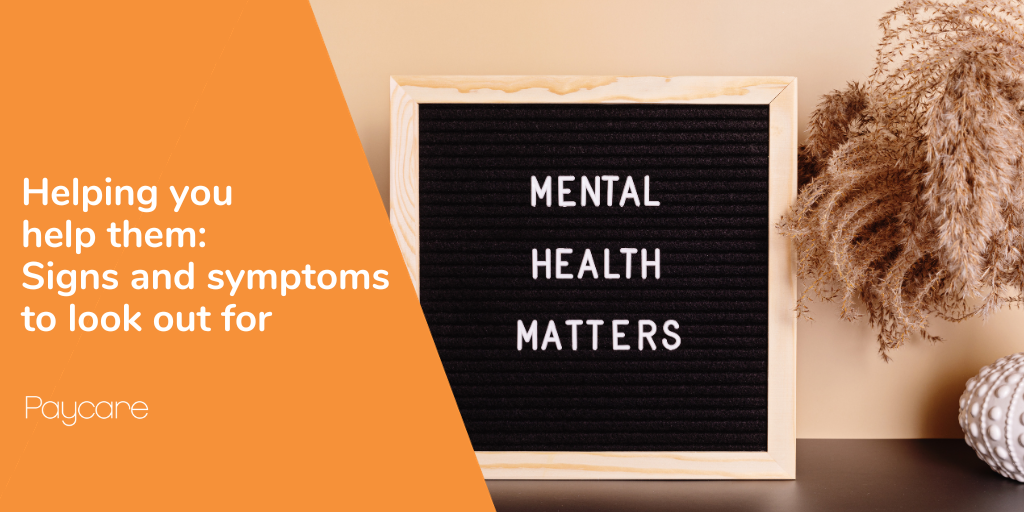If you see someone struggling, you’re likely to want to help – it’s a natural human reaction…
And this applies whether it’s a practical task, a work project, or something relating to their wellness: perhaps a dip in mood, a period of particularly high stress, or even an episode of mental ill health.
Most of us would like to be helpful in that situation and offer a listening ear, cup of tea, and some emotional support. While they may need to seek additional assistance from a health professional in order to effectively get through this time in their life, particularly where we are talking about any diagnosable mental health conditions, having the right network around them to talk to is also essential.
But how do you know when to intervene and start a conversation around wellbeing? Here are some of the signs and symptoms which may act as a prompt for that all important chat…
Emotional | This could include being tearful, angry, agitated. Of course, these are completely normal reactions to certain situations but it may be you notice extreme reactions or these emotions being present without an obvious trigger.
Distant | If someone’s struggling, they may start to withdraw – declining event invites, working from home more rather than the office, not replying to messages or picking up calls. If this is regular for your friend or colleague then it may not be a cause for concern, but if they’re usually fairly social then it could be an indication something’s not okay.
Substances | It’s not unusual for people to drink more alcohol if they’re feeling stressed or depressed, so it’s worth noticing if they’re suddenly drinking to excess, taking drugs or even engaging in other risk-taking behaviour like gambling.
Lacklustre | Wellbeing or mental health issues can cause someone to feel lacking in energy, struggling to motivate themselves, and feeling a little hopeless. You may pick up that they’re having difficulty through the way they present themselves, or through things they’re saying.
Changes | Because these problems can show up in a variety of ways – it’s important that you focus on what your friend or colleague is normally like, and whether you’ve noticed any changes in them which could imply they may need a chat.
Equally, there may be no outward signs that something is going on for them. That’s why going with your gut instinct and checking in with someone if you feel it may be needed is crucial.
The Samaritans are a fantastic resource to signpost to if needed, for yourself or family/friends/colleagues who show signs, and if the person you’re concerned about is a Paycare Policyholder they could also make use of their access to GP appointments and telephone counselling if they’d like to seek professional support.
We’ve also got some tips about how to start the conversation in this blog.
(And do remember to look after yourself too, as helping a friend through a tough situation can impact your own wellbeing!) 🧡
_______
Paycare’s mission is to support the health and happiness of the UK through a range of Health Cash Plans designed to ease financial pressure and promote a proactive approach to wellbeing. Find out more about our Plans for individuals here, or our Plans for organisations here.
As a not-for-profit, we’ve been investing in our communities since 1874, so you can rest assured you’re not only supporting yourself and your family – you’re also positively impacting the health and happiness of others too. Find out more about our ethos and history here.

